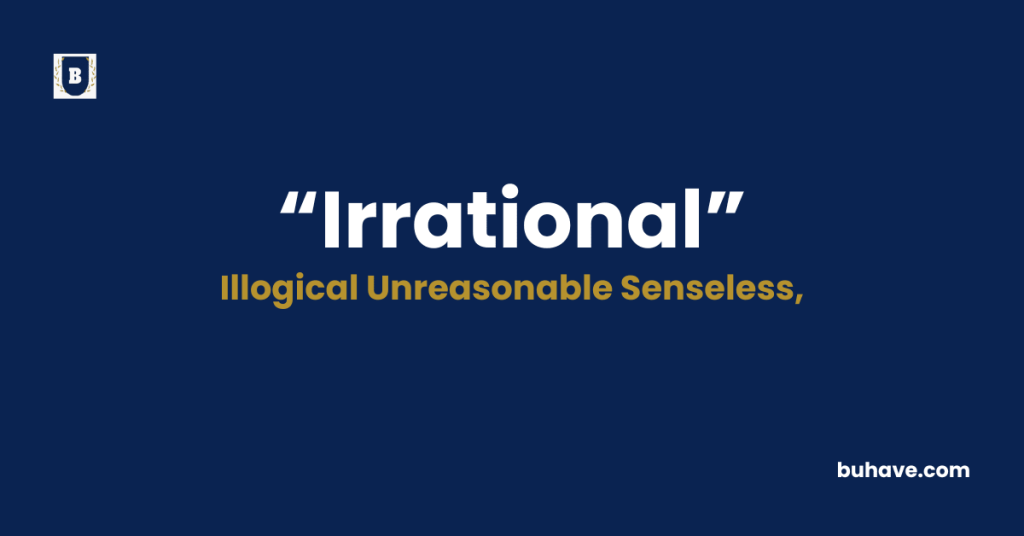The word Irrational (Adjective) refers to thoughts, actions, or beliefs that lack logical reasoning or sound judgment. In this guide, you’ll learn the full definition, synonyms, antonyms, etymology, and real-life examples of how to use Irrational correctly in sentences.
Irrational Explained in Depth
A complete and detailed guide to the word Irrational including meaning, definition, examples, etymology, synonyms, and antonyms.
Meanings of Irrational
Irrational means not based on reason, logic, or clear thinking. It often describes actions or beliefs that defy explanation or sound judgment.
Definition
Irrational refers to behavior, emotions, or decisions that are inconsistent with logic, facts, or reason. People may act irrationally when they are overwhelmed by strong feelings like fear, anger, or excitement. For example, refusing to fly despite strong evidence of safety may be considered irrational. This term can also apply to beliefs unsupported by evidence, such as certain superstitions or conspiracy theories. In some contexts, irrational behavior may be temporary, such as panic in a crisis. Other times, it may stem from underlying emotional or psychological conditions. Despite its negative tone, calling something irrational does not always imply criticism. Instead, it highlights the absence of logical thought or understanding. In everyday life, irrationality often appears during stress or emotional decision-making, reminding us of the importance of clarity and reason.
Etymology
The word “irrational” originates from the Latin term irrationalis, where in- means “not” and rationalis means “reasonable” or “logical.” It entered English in the late 14th century, initially used in philosophical contexts to describe things beyond the scope of human reasoning. Over time, the word expanded to describe human behaviors, emotions, or decisions that lack sense or coherence. Philosophers and mathematicians also used “irrational” to describe numbers that cannot be expressed as a ratio of two integers—such as π or √2. However, in everyday use, the term most often refers to thoughts and actions disconnected from logic or reason. This evolution shows how “irrational” moved from a technical term to a general description of behavior that feels unpredictable, emotional, or unexplainable.
Example Sentences
- Her fear of elevators seemed irrational to others, but it felt very real to her.
- It was an irrational decision to leave without any plan or support.
- He became irrational during the argument and refused to listen.
Irrational Synonyms
- Illogical
- Unreasonable
- Absurd
- Emotional
- Unfounded
- Incoherent
- Groundless
- Senseless
- Wild
- Unrealistic
Irrational Antonyms
- Rational
- Logical
- Reasonable
- Sensible
- Sound
- Coherent
- Prudent
- Measured
- Intelligent
- Clear-headed
FAQs about Irrational
Here’s a FAQ-style guide about the word “Irrational”
1. What does “irrational” mean?
It refers to thoughts or behaviors that lack logical reasoning or sound judgment.
2. Can irrational behavior be controlled?
Often, yes. Many irrational reactions can be managed through self-awareness and emotional regulation.
3. Is being irrational always bad?
Not always. Sometimes irrational feelings arise naturally from fear, trauma, or stress.
4. Are irrational fears common?
Yes. Many people experience irrational fears or phobias, which are often treatable.
5. How is “irrational” used in math?
In mathematics, it refers to numbers that cannot be expressed as a simple fraction, like π or √2.

















